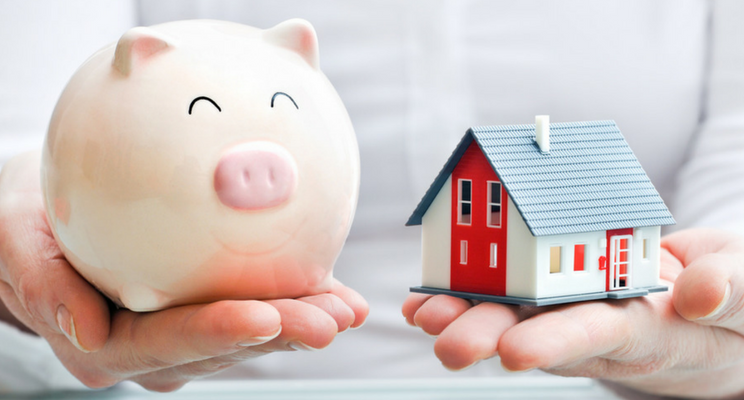Buying a house is one of the most important things you’ll do in your life, but it can also be one of the most expensive things you do. There are a lot of things to think about, from figuring out your current financial situation to discussing the purchase and making your monthly mortgage payments. This guide will teach you how to handle your money when buying a house so that the process goes smoothly and successfully.
The Beginning
Purchasing a home takes a lot of planning and thought because it involves spending a lot of money. Mastering your home-buying finances is important if you want to make smart choices and avoid problems along the way. Knowing your finances is the first thing you need to do if you want to become a homeowner, whether you’re buying your first home or looking to move up to a bigger one.
Getting to know your money situation
Before you start the home-buying process, you need to take a close look at your present cash situation. First, look at your pay, which should include salaries, bonuses, and any other money you make. Next, figure out how much you spend each month on things like rent, bills, food, and extras. Knowing how much money you make and lose will help you figure out how much you can spend on home costs.
Also, find your debt-to-income ratio by comparing how much you pay each month for debt to how much money you make each month. Lenders look at this number to see if you can make your monthly payments and decide if you qualify for a mortgage. To get a good mortgage rate, you should try to keep your debt-to-income level below 36%.
Setting goals for money
When you start the process of getting a house, you need to set clear financial goals. Set both short-term and long-term goals, like saving for a down payment, starting an emergency fund, or paying off your bills. Find out how much you need to save for a down payment based on how much you want to pay for a home, and make it a habit to save money every day until you hit your goal.
Aside from saving for a down payment, you should also put together an emergency fund to cover costs like repairs or losing your job. Aim to put away enough money in a flexible savings account to cover your living costs for three to six months. This will give you peace of mind when times get tough.
Getting a better credit score
Your credit score is a big part of getting a house because it affects whether you can get a mortgage and what interest rates you can get. Before you apply for a mortgage, you should take steps to improve your credit score. Get a copy of your credit record from each of the three main credit companies and look it over to see if there are any mistakes or things that don’t add up.
Next, pay your bills on time and get rid of as much debt as you can to lower your credit usage ratio. You might want to combine bills with high interest rates or set up regular payments to make sure you pay on time. You should also avoid adding new lines of credit or ending old accounts, as these actions can hurt your credit score.
Making a budget for buying a house
When making a budget for home costs, it’s important to figure out what you can spend. You should think about more than just the home’s buying price. You should also think about the costs that come up every month, like property taxes, renters insurance, and repairs. To make sure you can afford it, try to keep your living costs below 28% of your gross monthly income.
When saving for a down payment, you can try different things, like opening a separate savings account or using government programs that can help you. You should also plan for closing costs, which are usually between 2% and 5% of the purchase price and include things like title insurance, assessment, and inspection fees.
Looking into mortgage options
There are a lot of mortgage choices, so it’s important to learn about the different loan plans to find the one that works best for your budget. Conventional loans, FHA loans, VA loans, and USDA loans are all common types of mortgages. Each has its own set of standards for who can get one and how much of a down payment is needed.
When looking at mortgage deals, it’s important to look at both the interest rate and the length of the loan. These will affect your monthly payments and the total amount of interest you pay. You might want to get pre-approval from more than one loan so that you can compare rates and terms.
Getting to work with real estate agents
It can be hard to figure out how to buy a house, which is why working with experienced real estate agents is so important. A good real estate agent can help you find the right home, manage the housing market, and make deals on your behalf. Mortgage agents can also help you find good loan choices and walk you through the whole process of applying for a mortgage.
When looking for real estate agents, get suggestions from family, friends, or trusted advisors, and make sure the person you choose is a good fit by interviewing them. Keep in mind that these professionals are there to look out for your best interests, so don’t be afraid to ask questions or share any concerns during the process.
Talking about the purchase
You have to make an offer and talk about the terms of the deal once you’ve found your dream house. Together with your real estate agent, come up with a fair offer that takes into account the seller’s goals, the market, and similar sales. To protect your interests during the deal, you might want to include conditions like a home check and assessment.
Be ready to give in on some terms during talks, but stand hard on others that you will not change. To build a good relationship with the seller, keep the lines of communication open and treat them with care throughout the process. In the end, you should try to reach a solution that works for everyone and makes the close process go smoothly.
How to Figure Out Closing Costs
Closing costs are extra fees that you have to pay when you buy a house. They are usually between 2% and 5% of the purchase price. These fees pay for things like loan application fees, legal fees, title insurance, and costs that have already been paid, like property taxes and renters insurance. Some closing costs can be negotiated, but others have to be paid because lenders or local laws say so.
Carefully read the closing statement before the closing to make sure that the fees are correct and clear. You could ask the seller to pay some of the closing costs, or you could look for seller discounts to lower some of these costs. If you know how much the closing will cost ahead of time, you can plan your budget well and avoid any shocks at the last minute.
Making plans for home repairs and maintenance
Taking care of and maintaining a home is a constant task, so it’s important to plan for these costs in your budget. To keep your home in good shape, set aside money for regular maintenance chores like yard care, HVAC service, and roof cleaning. Also, make sure you have money set aside for fixes or improvements that you didn’t plan for, like changing tools or fixing damage to the structure.
To stay prepared and set priorities for chores based on the time of year, you might want to make a home care plan. You can avoid expensive fixes and keep the value of your investment in the long run by being cautious and taking care of maintenance issues as soon as they come up.
How to Avoid Money Pitfalls
Buying a house is an exciting step, but it’s important to stay away from common money mistakes that can stop you from becoming a homeowner. One common mistake is spending too much on upgrades and furniture, which can put a strain on your budget and make you regret your purchase. Instead, focus on making the most important changes first and adding extras gradually over time.
Also, plan for unplanned costs like fixes or upkeep, and include them in your budget. Putting aside money for situations will give you peace of mind and make sure you’re ready for anything that might happen while you’re a renter.
Going over financial documents very carefully
Before you sign the papers, it’s important to carefully read over all the financial paperwork that comes with buying a house. Spend some time reading over loan agreements, buy contracts, and closing disclosures. If you don’t understand any of the terms or conditions, ask for more information. If you have any questions or worries, don’t be afraid to talk to a lawyer or financial expert.
To make sure you know all the financial effects of property, pay close attention to things like interest rates, loan terms, and possible fees for paying off the loan early. You can avoid making mistakes that cost a lot of money and feel good about the choices you make during the home buying process if you carefully read all the paperwork.
Taking care of your monthly mortgage payments
After you buy a house, making your monthly mortgage payments is very important. You can make sure your monthly payments are made on time by setting up regular payments, and making payments every two weeks could help you pay off your mortgage faster. Plan for expenses that change over time, like property taxes and homeowner’s insurance. These costs may be rolled into your monthly mortgage payment through a savings account.
Keep an eye on your mortgage account on a daily basis to keep track of your principle and interest payments and find any mistakes or discrepancies. If you’re having trouble with money, don’t be afraid to talk to your lender about other ways to pay or programs that can help you through hard times. Remember that talking to your lender is important for solving problems and keeping a good relationship with them.
Getting a better mortgage
As you make your monthly mortgage payments, you’ll slowly build equity in your home. Equity is the difference between how much the home is worth on the market and how much you still owe on the loan. You can speed up equity growth by making extra capital payments or engaging in home improvements that raise the value of your house. Talking to a real estate agent or expert could help you figure out which changes will give you the best return on your money.
Adding wealth to your home not only raises your net worth, but it also gives you financial freedom and security for future plans. If you want to reach your financial goals, having a lot of equity in your home will help you. This is true whether you want to refinance, get a home equity loan, or sell your home in the future.
In conclusion
Getting your house-buying funds in order is a process that involves a lot of planning, spending, and making choices. You can feel confident about the home-buying process and reach your goal of owning a home if you know your finances, set clear goals, and work with professionals who have experience. To make sure the process goes smoothly, remember to plan for ongoing costs, stay educated, and avoid common financial mistakes.
FAQs
What is the first thing you need to do to master your house-buying finances?
It is very important to look at your present cash state. Find out how much you can spend by looking at your income, costs, and debt-to-income ratio.
Why is it important to plan your money before you buy a house?
Setting clear financial goals helps you decide how to spend your money, save for an emergency, and make a down payment, which makes the process of buying a home go more smoothly.
How can I raise my credit score so that I can get a better mortgage?
To improve your credit score, you should always pay your bills on time, get rid of debt, and dispute any errors that show up on your credit record.
What should I think about when I’m discussing the price of a house?
To get a good deal, you might want to negotiate more than just the purchase price. You might want to talk about closing costs, fixes, and options.
How can I buy a house without getting into financial trouble?
Don’t spend too much on changes; instead, plan for unplanned costs and read all of your financial papers carefully to avoid shocks later on.



